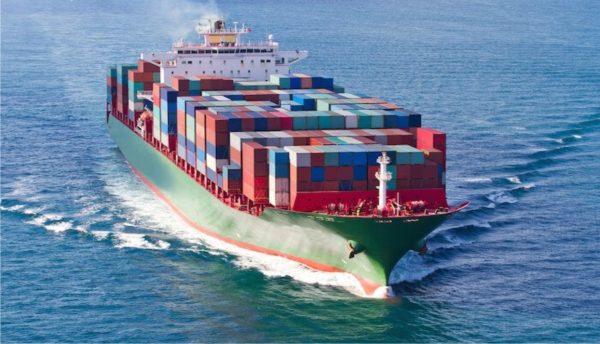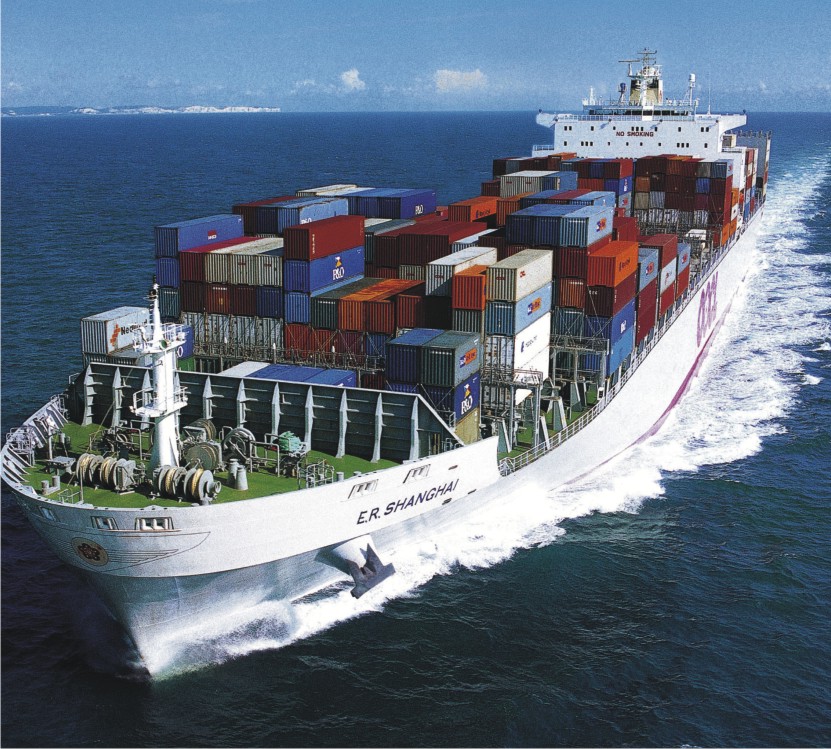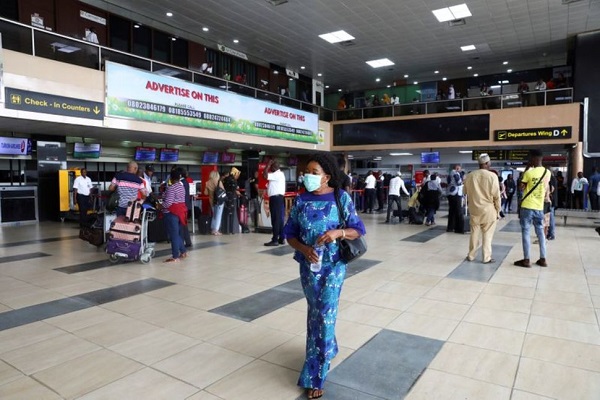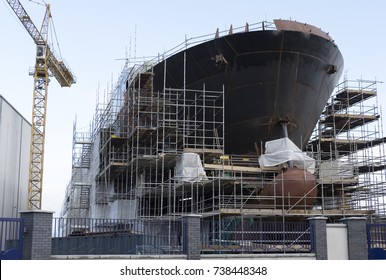How To Learn The ABC Of Shipping And Ports Operations In Nigeria- Okorefe
 The book; “ABC of Shipping and Ports Operation in Nigeria” written by Mr. Charles Okorefe was recently launched in Lagos. According to the readers, the book is a must-have for all stakeholders involved in shipping and port operations in the country. It could also be a useful tool for students and those who may be interested in investing in the sector. At the luncheon, the Deputy Comptroller, Enforcement at Tin Can Customs Command, DC Dera Nnadi presented an apt review; Enjoy it:
The book; “ABC of Shipping and Ports Operation in Nigeria” written by Mr. Charles Okorefe was recently launched in Lagos. According to the readers, the book is a must-have for all stakeholders involved in shipping and port operations in the country. It could also be a useful tool for students and those who may be interested in investing in the sector. At the luncheon, the Deputy Comptroller, Enforcement at Tin Can Customs Command, DC Dera Nnadi presented an apt review; Enjoy it:
ABC of Shipping and Ports Operation in Nigeria published September, 2018 ISBN: 978-978-950-561-6 is 233 pages of history and port operation written by Mr. Charles Okorefe and published by Stepcraft Books.
The author Mr. Charles Okorefe is a maritime sector practitioner with over two decades of both academic and practical work experience in this all important sector of the economy. Mr. Okorefe started out as a historian having graduated Bachelor of Arts Special Honours in History from the then University of Ife from where he also studied and acquired a Master of Science in International Relations. Following his foray into the maritime sector, he studied and obtained a Master of Transport Management from Ladoke Akintola University of Science and Technology Ogbomoso. This background of the author played a significant role in the structure and content of the book we are about to unveil today.
The book “ABC of Shipping and Ports Operation in Nigeria” presents a historical insight into the evolution of shipping and ports development in Nigeria with brief overview of various ports and jetties commencing with the development of modern Maritime trade in Nigeria with the formation of Southern Nigeria Marine [1906], the opening of the sand bar at the entrance of the Lagos Harbor in [1907] and the Northern Nigeria Marine with headquarters at Lokoja [1908]. These culminated into the Nigerian Marine following the 1914 amalgamation, and the establishment of what could be regarded as a seaport with the creation of the defunct Customs Wharf in 1921.
The book also described in a simplified manner, the Ship and its Management listing various types and uses of ships and tug boats supported with pictorial evidence for those who may not have seen any of these before. This style of presentation is unique considering that this book will serve past, present and future practitioners of shipping and ports operators in Nigeria and the sub-region.
It also highlighted the various operational terms and activities deployed in shipping from documentation to the role of the ship agents, entry into ports and boarding procedures to outward clearance formalities. Indeed for those who may not have ventured into the port first time, this book gives a vivid imagination of what ship operation is all about while it reminds old time practitioners of the meaning and international significance of the some of the terms we often use loosely in the industry. For instance, in the course of reading the book for this review, I learnt for the first time the full meaning of Ship’s Protest Note. Terms most people especially Ship Agents apply often without knowing the essence.
Also discussed in details but in simple and concise terms are the various elements of contract in shipping from to trade, legal matters, port dues, Customs and the various international commercial terms [INCOTERMS] deployed in trade.
Furthermore, the book presents a link between government ownership of the port and private ownership. For those of us that witnessed the concession of the port and the various Customs reforms, this will give an insight into the reasons behind the agreements and for those hoping to also bid for any of the port infrastructure in the future, this will serve as an intelligent guide based on international requirements and standards.
The book also dwelt and simplified port management with emphasis on standard port facilities and services, cargo handling facilities from the simplest deployed for roll on roll off [RoRo] operation to very large crude carriers [VLCCS]. One other interesting aspect of the book is the Customs cargo brokerage procedures in Nigeria ports which described the basic cargo clearing process for cargo commencing from the traders zone to Customs zone and the various roles expected from the other regulatory agencies of government.
Although this aspect of the book captured the core and basics of this aspect of port operation, it remains a work in progress as it is the most dynamic in terms of reforms. I state this with all sense of purpose considering that “container deposit payments and refund” and “deposit deductions” being two burning issues in the industry were highlighted. Indeed I know that practitioners who read this book will find opinions about these two issues a hot debate and I recommend they should come up with their own criticisms for or against the opinion of the author.
You will agree with me that no serious book in modern port operation in Nigeria will be complete without capturing the oil and gas sector of the maritime industry. The author dwelt so much on the Nigeria coastal and inland shipping and elaborated on historical perspective of “Cabotage” and the “Nigeria Cabotage Act 2003”. For me, I found the aspect of the book that discussed tug boats and barge very interesting and I guess it will interest you too considering that though an old form of inland water way movement of cargo the current crisis of cargo trucking by road in and around the port has made it an emerging option for saving time and resources.
Finally before I conclude, let me summarize the mindset of the author from my deductions as I read this book “Apart from the usual function of receiving ships for cargo loading and discharging activities, the seaport , to a very large extent, is a valuable product that requires adequate and effective marketing to the outside world by its operators. The purpose is to ensure the retention of old and existing customers of the port and also to woo new and potential ones to utilize her services and facilities for optimum return on investment on the port”.
For those of us already in the port, I hope this has a correlation with your role in the port, for those hoping to join us I hope this is your expectation and for those who are our heroes past I hope we are by this quote living up to your expectations. If you are in any of these categories and agree with this quote, please buy this book.







